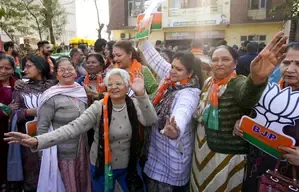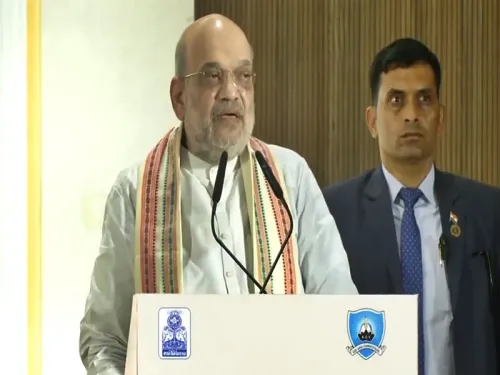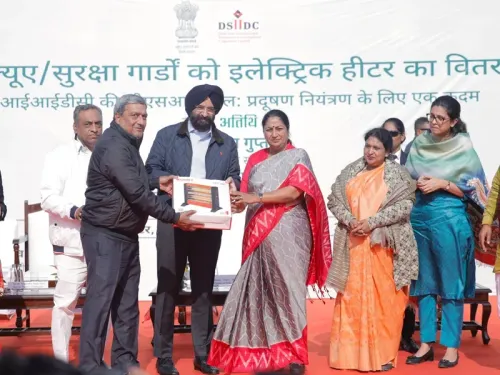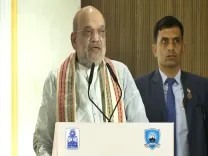Women's Impact: How PM Modi's Assurance Outshone Kejriwal's Rs 2100 Pledge in Delhi

Synopsis
Key Takeaways
- Women voters played a crucial role in the BJP's win.
- PM Modi's promises resonated more than Kejriwal's.
- Women turnout exceeded men for the first time.
- Past failures of Kejriwal impacted women's trust.
- BJP's financial aid offer appealed to women voters.
New Delhi, Feb 8 (NationPress) The BJP's triumph in the 2025 Delhi Assembly elections was not merely a political success; it was a clear indication of the influence wielded by women voters.
In the midst of fierce competition, a quiet revolution led by the women of Delhi seemingly altered the political landscape, showcasing a notable transformation in their electoral preferences. This change was fueled by their faith in Prime Minister Narendra Modi’s commitments over the ‘rhetoric’ espoused by Delhi Chief Minister Arvind Kejriwal.
During his campaign, Kejriwal asserted that his administration would implement a scheme providing Rs 2100 for women if re-elected. However, despite such an incentive, Kejriwal's credibility faced skepticism from a considerable segment of Delhi's electorate.
For numerous women, his prior governance shortcomings, which included corruption accusations and an absence of substantial improvements in essential sectors like healthcare and education, overshadowed the promises made.
Furthermore, women expressed dissatisfaction with Kejriwal’s inability to roll out the Mahila Samman Yojana, which was supposed to allocate Rs 1000. They also noted the AAP government's failure in Punjab to introduce a comparable initiative.
Simultaneously, as the Delhi Assembly elections approached, the BJP pledged financial assistance of Rs 2500 to women. The AAP, having secured roughly 60 percent of the women’s vote share in the 2020 elections, aimed to reinforce its support but ultimately faltered in winning their confidence.
This election marked a historic moment, as the turnout of women voters in Delhi exceeded that of men. Among the total registered women voters in the city (72.37 lakh), 60.92 percent participated in the voting, compared to 60.21 percent of men.
Out of the 70 constituencies, 41 experienced a rise in women voter turnout. Observers note that women predominantly voted for the BJP, placing greater trust in PM Modi than in Kejriwal.
Women appeared to have faith in PM Modi, who offered guarantees of safety, empowerment, and development. Initiatives like Beti Bachao Beti Padhao, which prioritized women's education, security, and economic empowerment, had already made an impact.
Women felt reassured that under PM Modi’s guidance, their welfare and future were secure. The BJP’s dedication to infrastructure development, healthcare, and job creation resonated with their aspirations for a better, more secure life.
Political analysts indicate that while Kejriwal fixated on populist promises, PM Modi engaged with women on a profound level, presenting not just assurances but a history of policies that empowered them.
“The women of Delhi, who frequently endure social and economic disparities, recognized in PM Modi’s leadership the potential for a future where they would significantly contribute to the nation’s progress,” states a political analyst.
Experts believe that it was the women’s vote that solidified the BJP's victory, demonstrating that trust and long-term benefits outweigh fleeting populist promises.










